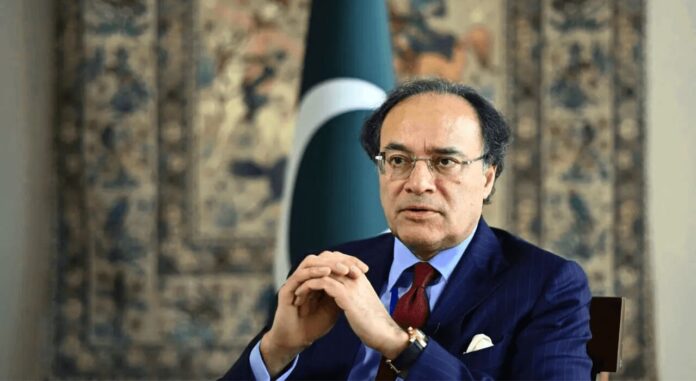Finance Minister Muhammad Aurangzeb announced that the government is resolute in its decision to recover taxes from all sectors, including real estate, wholesale, and agriculture, which have historically avoided equitable contributions.
Speaking in an unscheduled television address, the minister emphasized the urgency of tax compliance, declaring, “This is not a request; it is something we have to do.”
He warned that enforcement measures would ensure these sectors contribute to the national economy, breaking the over-reliance on taxes from the salaried class and manufacturing sector.
The minister underscored the inevitability of broad-based taxation, stressing that the government would be “very firm on compliance and enforcement.” He directly addressed resistance from stakeholders, urging them to align with the national vision.
On broader issues, Aurangzeb highlighted a “climate and population emergency,” calling for a national Charter of Environment. He pointed out that 40% of Pakistani children suffer from stunted growth, and the country’s population growth is unsustainable for economic expansion from $300 billion to $3 trillion by 2047.
Aurangzeb also spotlighted the crisis of out-of-school children, most of whom are girls, and pressed for national discourse on challenges such as flooding, pollution, and decarbonization.
Lauding Pakistan’s “macroeconomic turnaround,” he cited international recognition, including by credit rating agencies, but warned against complacency. Inflation, he noted, had dropped from 38% to 7%, and the policy rate reduced from 22% to 15%. Foreign exchange reserves now cover 2.5 months of imports, up from two weeks.
He affirmed that the International Monetary Fund (IMF) and other lenders appreciated Pakistan’s economic progress and ongoing structural reforms in taxation, energy, and state-owned entities. Discussions with the IMF remained positive, focusing on quarterly benchmarks, privatization efforts, and public finance reforms.
Prime Minister Shahbaz Sharif is expected to unveil a “homegrown economic roadmap” after consultations with stakeholders, providing a strategic vision to sustain the economic recovery. The minister also praised provincial governments for their cooperation on taxes and financial responsibilities, framing the effort as a “whole-of-government” approach.
Aurangzeb concluded with a call for unity, urging political parties, the media, and society to address pressing challenges collectively and build upon the hard-earned macroeconomic stability.




